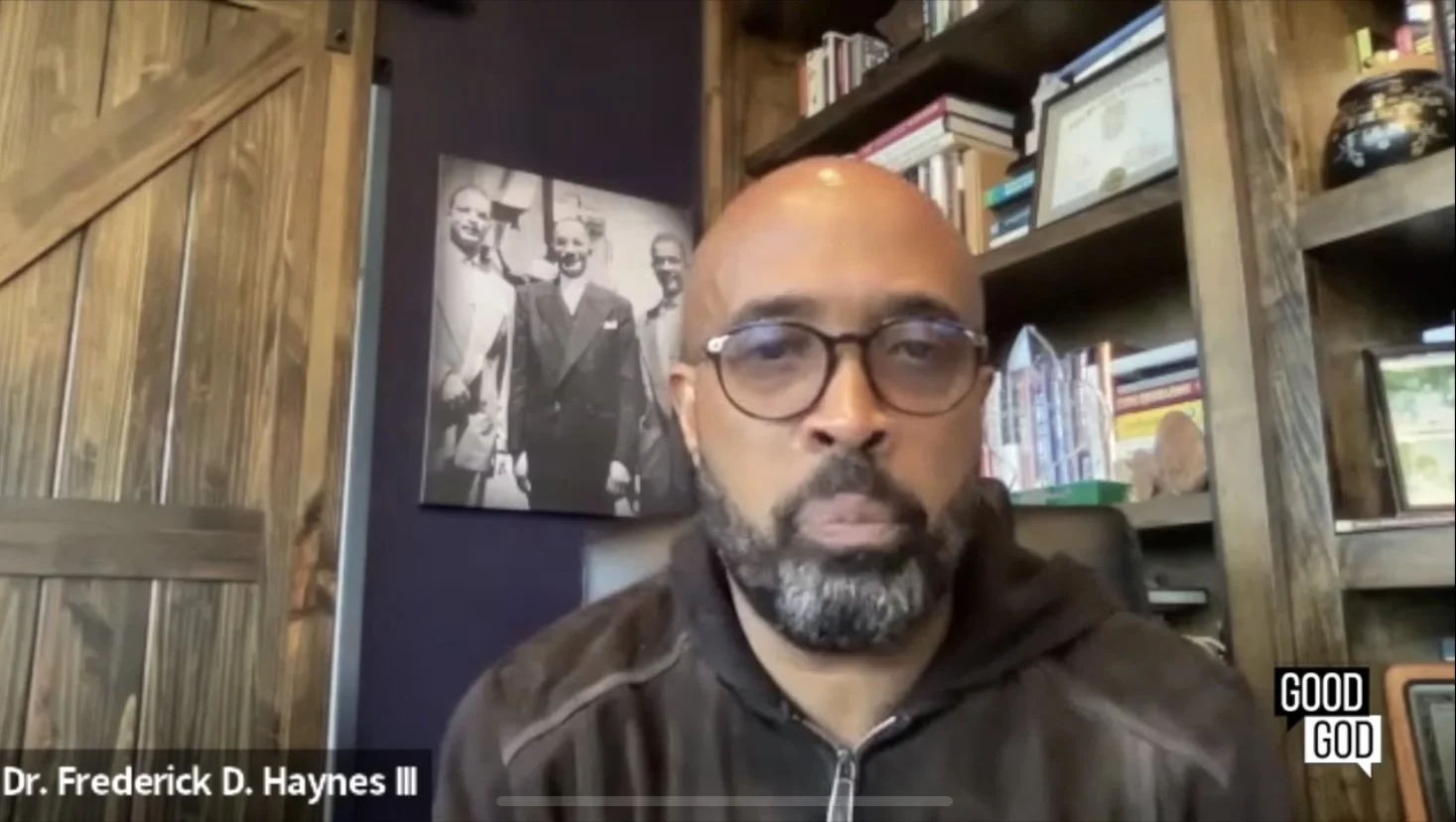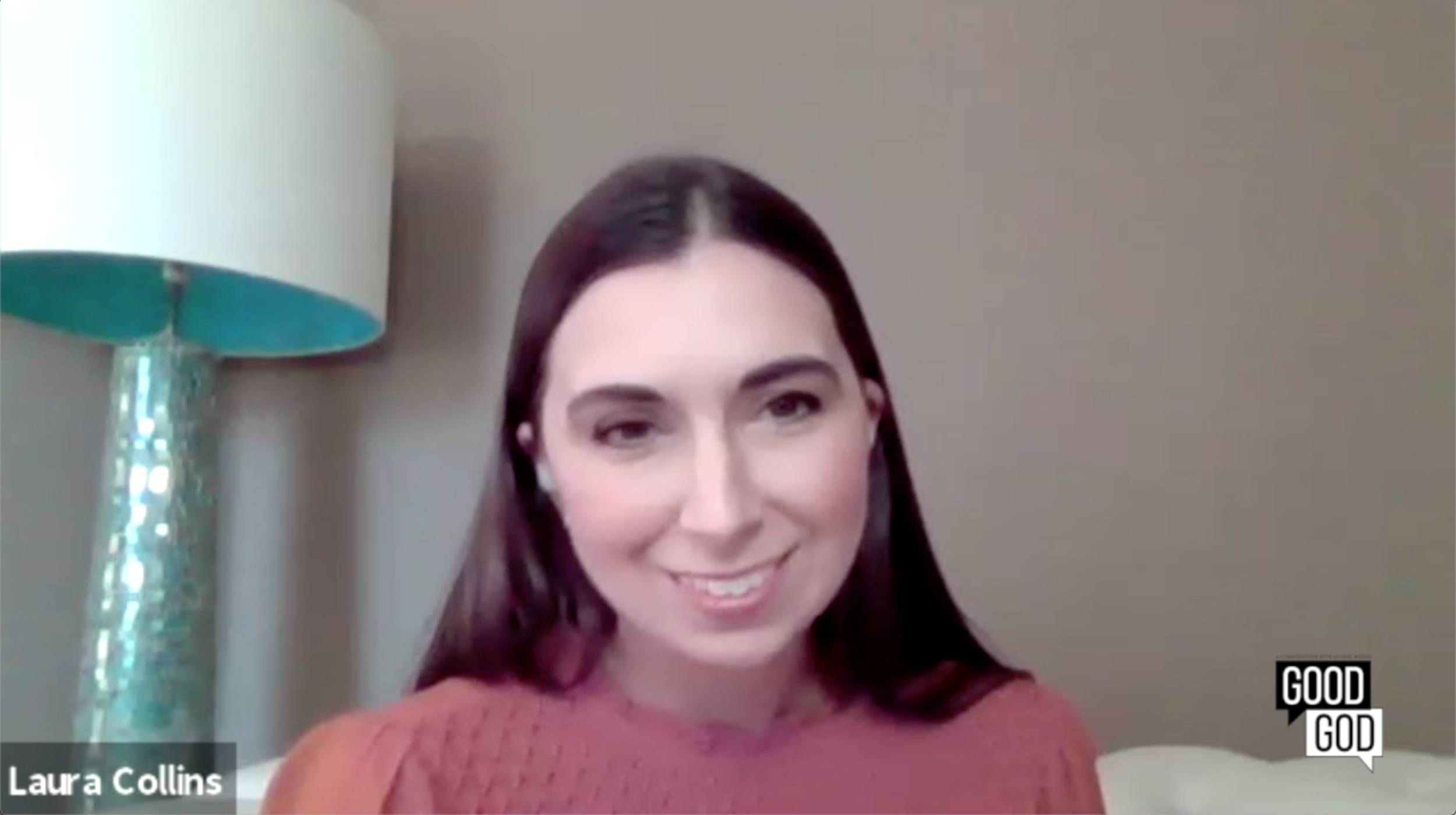In this pivotal election year, Rev. Dr. George Mason led the participants at Saint Michael and All Angels Episcopal Church’s Pub Theology in a reflective exploration of the role Christianity has played and should play in the realm of politics.
From navigating contentious issues to grappling with the concept of Christian nationalism, he delved into the complexities and challenges of faith-based engagement in the public sphere.
“Patriotism is love of country. Nationalism is hatred of the other.”
This episode features a conversation with Rachel Laser, President & CEO of Americans United for Separation of Church and State, protecting the foundational American principle of freedom of religion—including the right to believe or not believe—for all.
George & Rachel discuss the intersection of religious freedom and abortion laws. Rachel highlights the importance of church-state separation in preserving religious freedom and democracy. They unpack the role of religious pluralism in America and the necessity of protecting the rights of all citizens, regardless of their faith. The episode also touches on the challenges of motivating moderate voices and fostering meaningful dialogue across differences.
The discussion serves as a prelude to an upcoming event in Dallas focusing on these critical issues.
George is joined by Brian Kaylor, author of the book "Baptizing America: How Mainline Protestants Helped Build Christian Nationalism"—a critique of the concept of civil religion, arguing that such expressions are far more dangerous than we realize.
In this conversation, they discuss his new book; the dangers of a softer, friendlier Christian Nationalism present in many mainline protestant churches; and the difficult work of figuring out what is American and what is Jesus's teachings. To make this distinction, we must ask ourselves, "What are they trying to accomplish? And how are they treating our fellow citizens in our increasingly pluralistic society?"
"It's cathartic to point at...evangelicals, and say, 'Look at them.' Right? But what if we actually did something in our own circles of influence, in our own communities to reduce Christian Nationalism?" - Brian Kaylor
Read MoreMeet Dr. Jeff Sharlet, Professor in the Art of Writing at Dartmouth College and author of the recently released The Undertow: Scenes from a Slow Civil War. In it, he journeys into the corners of our national psyche in an attempt to understand how, over the last decade, reaction has morphed into delusion, social division into distrust, distrust into paranoia, and hatred into fantasies—sometimes realities—of violence.
In this conversation, George and Jeff discuss the religious dimensions of American politics, and the role of grief and uncertainty in the midst of plague and rising fascism. Sharlet offers insight into both the human condition and into our country today, bringing to light a decade of American failures as well as a vision for American possibility,
Jeff Sharlet is the New York Times bestselling author or editor of eight books. His latest is The Undertow: Scenes from a Slow Civil War (2023), a National Book Critics Circle Award Finalist for Nonfiction, one of The New York Times 100 Books of the Year, and a New Republic book of the year.
George is joined by Chris Walsh and William McKenzie, both of the George W. Bush Institute where they engage in the advancement of freedom and democracy in the world.
In this second episode of the Courageous Conversations series, they discuss what they call "the pluralism challenge," the role of pluralism in strengthening our democracy, the importance of a vibrant religious pluralism, and what American democracy means—even when it falls short of its own ideals.
Chris Walsh serves as Director, Global Policy at the George W. Bush Institute. In this role, Mr. Walsh manages communications, evaluation, and public policy research projects that advance freedom and democracy in the world.
William McKenzie is senior editorial advisor at the George W. Bush Institute, where he is working on editorial projects on democracy and freedom and education reform.
Carl Sherman, the State Representative responsible for the Botham Jean Act, explains how he transformed street protests into public policy.
Read MoreSonja Miller, faith director for the Texas Freedom Network, talks reproductive rights, public education, and finding common ground beyond left vs. right.
Read MoreMitri Raheb is a Palestinian Christian, born in Bethlehem across the street from where Jesus was born. He speaks on the conflict between Israel and Palestine and his creation of interfaith communities that respond to Palestinian suffering through art.
Read MoreKristin Du Mez reminds us that she is a historian first, even though her sensational book, Jesus and John Wayne, has invoked fierce theological backlash from evangelicals. Hear her response to the pushback, plus a breakdown of the patriarchy that is so persistent in evangelical churches.
Read MoreRabbi Rachel Mikva wrote the book, Dangerous Religious Ideas, and she is here to discuss the ways that religion is harmful.
Read MoreCarl Sherman, the State Representative responsible for the Botham Jean Act, explains how he transformed street protests into public policy.
Read MoreJust days before Martin Luther King Day, Reverend Dr. Frederick Douglas Haynes III talks with George about the misconceptions surrounding Dr. King’s legacy, and the important difference between equity and equality.
Read MoreHugo Magallanes, Associate Dean of Perkins School of Theology and professor of Christianity and Culture, joins us today to discuss how he weaves the subject of immigration into his academic work.
Read MoreTess Clarke, director of We Welcome Refugees, shares her most impactful stories, and stresses the importance of putting yourself in the shoes of an immigrant.
Read MoreJesús Romero is the director of the ISAAC Project, a San Antonio-based organization that can help churches become more involved in immigration aid. Hear his story as a first generation immigrant and advocate for the cause.
Read MoreSid Earnheart is an immigration attorney and advocate for Texas Impact. He also has a ministry degree from Perkins School of Theology. Hear how he merges all three perspectives.
Read MorePia Orrenius, VP and senior economist with the Federal Reserve Bank in Dallas, discusses the economics of immigration. She and George also explain how migration is a central theme in the biblical story.
Read MoreElket Rodriguez, an immigrant and refugee specialist, works for the Cooperative Baptist Fellowship and Fellowship Southwest. He addresses common myths about immigrants, and offers four practical suggestions for how you can help.
Read MoreBeth Barr is the author of The Making of Biblical Womanhood: How the Subjugation of Women Became Gospel Truth. She is here to speak with us on an important issue: complementarianism and suppression of women in the church.
Read MoreLaura Collins is the director of the Bush Institute, SMU Economic Growth Initiative. She shares compelling arguments as to why immigration is good for the economy.
Read More


















